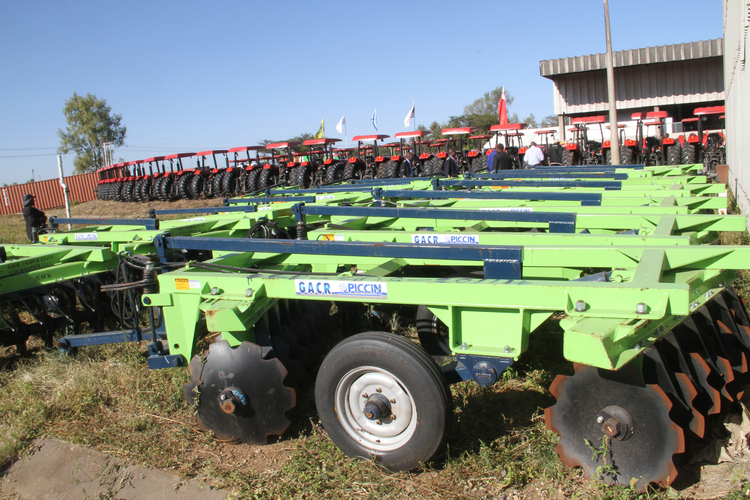
The Sunday Mail


Farm equipment valued at $38,6 million which was secured from Brazil is expected to boost national food production
Emilia Zindi – Agriculture Editor
The farm equipment valued at $38,6 million which was secured from Brazil is expected to boost national food production. The equipment could be the much needed panacea as it comes at a time when the country is emerging from a dry season which saw more than 300 000 hectares of planted crops being written off.
About 70 percent of the other sectors’ inputs come from agriculture and therefore, a boost in agriculture will likely have beneficial ripple effects across all industries.
Distribution of the first tranche equipment to small holder farmers started this week. The smallholder farmers contribute a significant 70 percent towards national food security.
Under the scheme, Zimbabwe is expected to pay back the loan over 15 years with interest of two percent per annum.
When the machinery was commissioned by The Head of State and Government President Mugabe at the Grain Marketing Board Depot in Masasa, Harare, representatives of beneficiaries could not hide their joy.
Among the state of the art equipment were 450 rom discs, 218 plough discs, 310 planters, 100 fertiliser spreaders, 6 650 knapsack sprayers and irrigation machinery such as 96 hose reel, 106 pump stations, 37 centre pivots and 473 horse-power tractors.
The Minister of Agriculture, Mechanisation and Irrigation Development Cde Joseph Made did not waste any time in ensuring the equipment was distributed to the beneficiaries.
All the country’s 10 provinces have already benefited from the scheme.
From 2004 to 2007, Government, through the Ministry of Agriculture, Mechanisation and Irrigation Development, coordinated the importation of tractors and other implements in support of the Farm Mechanisation Programme. The recent development will go a long way in narrowing the national deficit of tractors which stands at 35 000.
Beneficiaries are looking forward to irrigation as climate change continues to shift farming seasons. Winter cropping is also expected to improve. Winter maize planted around this time can be harvested around October before the onset of the summer cropping season.
Land under irrigation is expected to increase from the current 150 000 hectares to 220 000 by 2018.
However, while the acquisition of the farming equipment is a step in the right direction, there are other factors that must be taken into account for sustainable increased productivity.
“The distribution of this state of the art equipment is very good but there is need to correct other factors that also affect farm production,’’ said the Zimbabwe Farmers Union Executive director Mr Paul Zakariya.
He pointed out input costs as one such factor. Of late, both smallholder and commercial farmers have been indicating that inputs are too expensive.
Mr Zakariya said a regional Farmer Union Forum that he recently attended in Seychelles had highlighted that Zimbabwe has the highest input costs. This was despite the fact that the same seed varieties, fertilisers, chemicals and fuel were being used by other countries in the region.
“We wonder what is so special with our fertiliser or seed which makes it so expensive. As long as prices of inputs remain this high, our farmers may fail to excel,’’ he said.
He urged Government to look into the plight of farmers.
Zimbabwe Commercial Farmers Union president Mr Wonder Chabikwa echoed the same sentiments.
“We are happy with the new equipment but farmers need cost of production to go down to match their regional counterparts. This is why our farmers make a lot of noise during the marketing season, they will be looking at the cost of production and what they will be getting at the end of the day, it does not tally,’’ said Mr Chabikwa.
“It is only in Zimbabwe where a 50kg bag of fertiliser is going for $38 in the urban centres and up to $45 in the rural areas. If the input costs are low, the other costs can then be transferred to paying labour.
“Farming is a business where one must realise a profit,’’ said Mr Chabikwa.
He said even water and electricity charges were exorbitant. This winter season alone, winter wheat farmers are being asked to part with $5 000 upfront for water usage.
Such high input costs are throwing spanners in the way of high agricultural production.
It is critical to understand how the farm mechanisation programme has been successfully implemented in Brazil and other countries.



